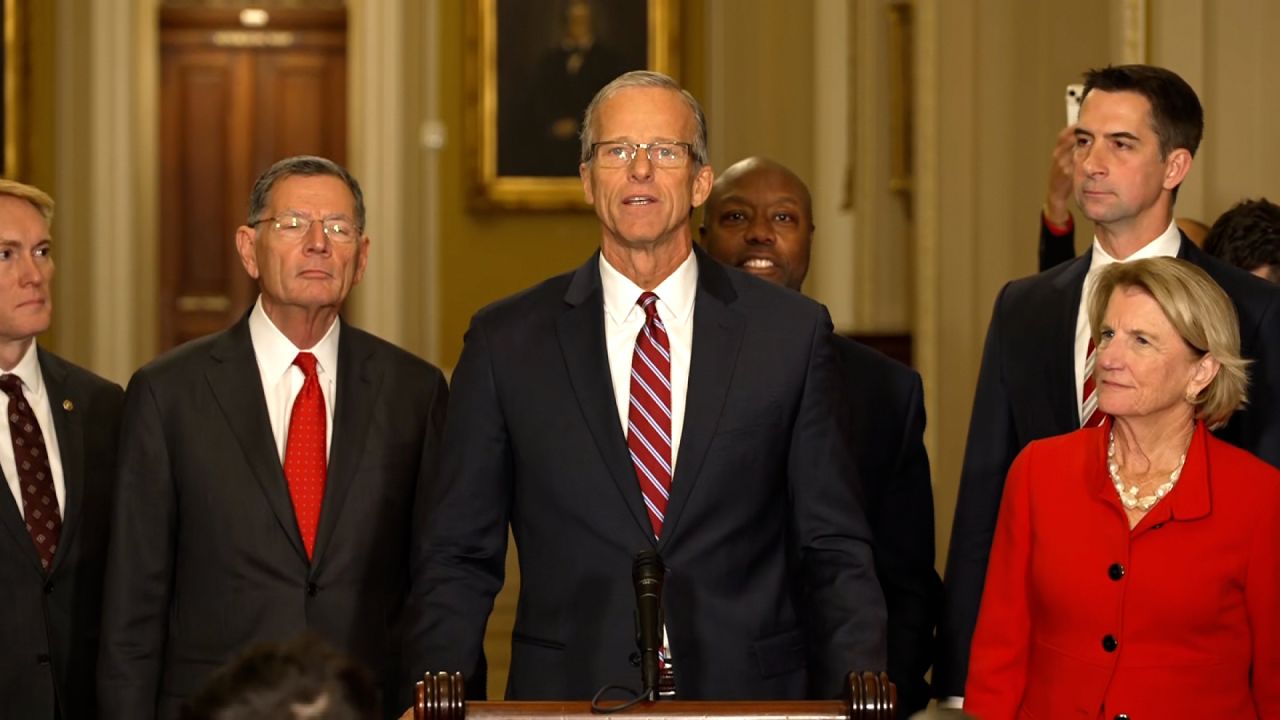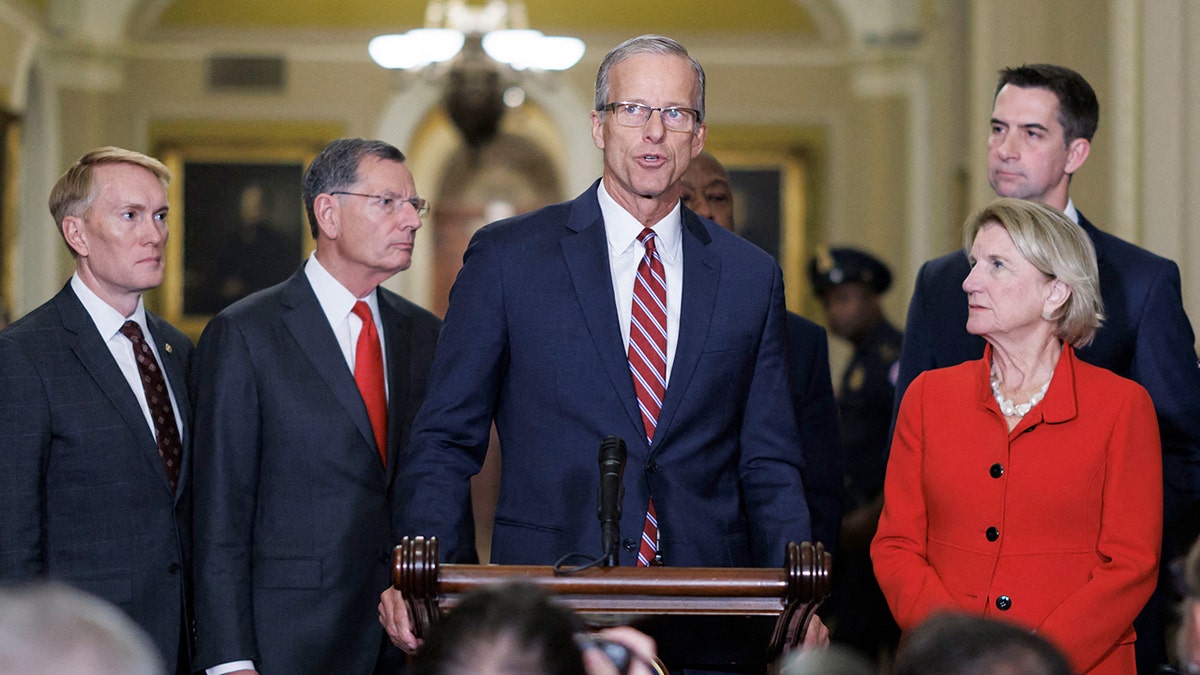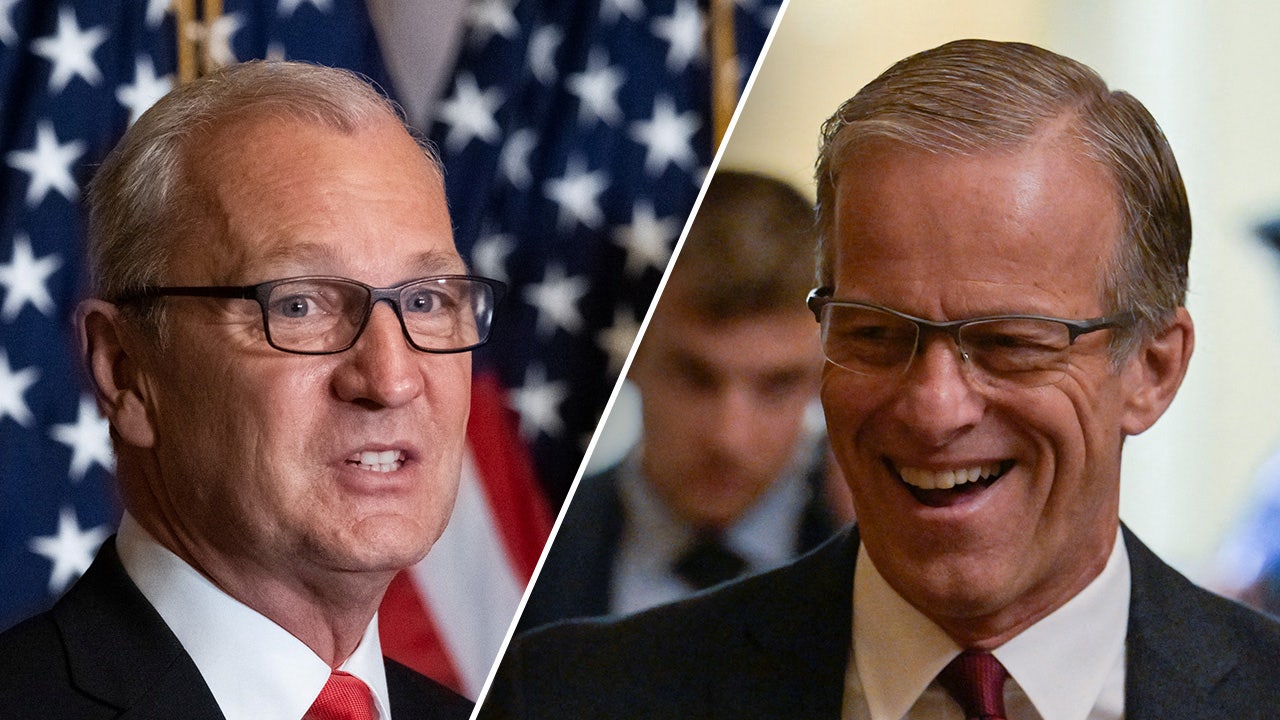John Thune: The Untold Story And Controversies Surrounding His Life
John Thune is a name that has sparked significant discussions and controversies in American politics, particularly surrounding the "John Thune gay" allegations. This article aims to explore the truth behind the claims, his political career, and the impact of such rumors on his public image. As one of the most influential figures in the Senate, understanding the context of these allegations is crucial for an informed perspective.
John Thune has been a prominent figure in American politics for decades, serving as a senator from South Dakota. However, his name has often been associated with rumors and controversies, including the "John Thune gay" allegations. These claims have not only raised questions about his personal life but also sparked broader discussions about privacy, media scrutiny, and the role of personal lives in public office.
In this article, we will delve into the details of John Thune's life, his political career, and the origins of the "John Thune gay" allegations. By examining credible sources, data, and expert opinions, we aim to provide a balanced and factual perspective on this topic. Whether you're a political enthusiast or simply curious about the truth, this article will offer insights that go beyond sensational headlines.
Read also:Andrea Agnelli Net Worth A Deep Dive Into The Juventus Chairmans Wealth And Influence
Table of Contents
- Biography: A Closer Look at John Thune
- John Thune's Political Career
- Controversies Surrounding John Thune
- The "John Thune Gay" Allegations
- Impact of Media on Political Figures
- Privacy and Public Figures
- Public Opinion and Perception
- Ethical Considerations in Journalism
- Conclusion: The Importance of Facts Over Sensationalism
- Further Reading and Resources
Biography: A Closer Look at John Thune
Before diving into the controversies, it's essential to understand who John Thune is and his journey to becoming a prominent political figure. John Thune was born on July 29, 1960, in Sioux Falls, South Dakota. He graduated from Augustana College with a degree in biology before pursuing a law degree at the University of South Dakota.
Thune's political career began in 1996 when he was elected to the U.S. House of Representatives. In 2004, he made history by defeating incumbent Tom Daschle, becoming the first Republican to unseat a Senate Democratic leader in over 50 years. His rise to prominence marked a significant shift in South Dakota's political landscape.
John Thune's Personal Life
Beyond his political career, John Thune is married to Julie Thune, and they have two daughters. His personal life has generally remained private, but the "John Thune gay" allegations have brought attention to his private affairs. Below is a table summarizing key details about his personal and professional life:
| Full Name | John Richard Thune |
|---|---|
| Date of Birth | July 29, 1960 |
| Place of Birth | Sioux Falls, South Dakota |
| Education | Augustana College, University of South Dakota School of Law |
| Spouse | Julie Thune |
| Children | Two daughters |
John Thune's Political Career
John Thune's political career has been marked by significant achievements and leadership roles. As a senator, he has focused on issues such as tax reform, healthcare, and national security. His ability to navigate complex political landscapes has earned him respect from both sides of the aisle.
Key Achievements in Congress
- Played a pivotal role in shaping Republican tax policies.
- Served as the chairman of the National Republican Senatorial Committee.
- Advocated for rural development and agricultural reforms.
Despite his accomplishments, Thune's career has not been without challenges. The "John Thune gay" allegations have occasionally overshadowed his legislative successes, leading to questions about the intersection of personal life and public service.
Controversies Surrounding John Thune
Like many public figures, John Thune has faced controversies throughout his career. One of the most significant allegations involves the "John Thune gay" rumors, which have circulated for years. These claims have been the subject of intense media scrutiny and public debate.
Read also:Understanding G12 Antifreeze Equivalent A Comprehensive Guide
Origins of the Allegations
The "John Thune gay" allegations first surfaced in the early 2000s, with various sources claiming insider knowledge about his personal life. However, these claims have never been substantiated by credible evidence. Thune and his representatives have consistently denied the allegations, emphasizing the importance of focusing on his legislative work rather than unverified rumors.
The "John Thune Gay" Allegations
The "John Thune gay" allegations have been a recurring topic in political circles, sparking discussions about the role of personal lives in public office. While the claims have persisted, they have also raised questions about the ethical boundaries of media reporting and the right to privacy.
Impact on Public Perception
For many, the "John Thune gay" allegations have become a symbol of the media's tendency to sensationalize private matters. Studies show that such rumors can significantly influence public opinion, often overshadowing a politician's actual achievements and policies. According to a Pew Research Center report, 70% of Americans believe that media coverage of politicians' personal lives can distract from important issues.
Impact of Media on Political Figures
The media plays a crucial role in shaping public perception of political figures. In the case of John Thune, the "John Thune gay" allegations have highlighted the double-edged sword of media scrutiny. While transparency is vital in a democratic society, the line between accountability and invasion of privacy can sometimes blur.
Responsibility of Journalists
Journalists have a responsibility to report facts accurately and ethically. The Society of Professional Journalists emphasizes the importance of verifying information before publication. In the case of the "John Thune gay" allegations, the lack of credible evidence raises questions about the ethical standards of those who perpetuate such claims.
Privacy and Public Figures
Privacy is a fundamental right, even for public figures like John Thune. While politicians are expected to be transparent about their actions, their personal lives should not be subject to unwarranted scrutiny. The "John Thune gay" allegations underscore the need for a balanced approach to media coverage, ensuring that privacy is respected while accountability is maintained.
Legal Protections for Privacy
Many countries have laws protecting individuals' privacy, even if they hold public office. In the United States, the First Amendment allows for freedom of the press, but it also recognizes the importance of respecting individuals' rights. The "John Thune gay" allegations have sparked debates about whether such claims fall within the boundaries of acceptable reporting.
Public Opinion and Perception
Public opinion plays a significant role in shaping the narrative around political figures. The "John Thune gay" allegations have divided public opinion, with some believing the claims and others dismissing them as baseless. A Gallup poll found that 60% of Americans believe that personal lives should not influence political decisions, highlighting the growing recognition of the need for objectivity.
Changing Social Norms
As societal attitudes toward LGBTQ+ issues evolve, the "John Thune gay" allegations have also sparked discussions about acceptance and inclusivity. Many argue that focusing on a politician's sexual orientation detracts from their ability to serve the public effectively. This shift in perspective reflects a broader movement toward understanding and respecting individual identities.
Ethical Considerations in Journalism
Ethics in journalism is a critical aspect of responsible reporting. The "John Thune gay" allegations serve as a case study for examining the ethical boundaries of media coverage. Journalists must weigh the public's right to know against the individual's right to privacy, ensuring that reporting is accurate, fair, and respectful.
Best Practices for Reporting
- Verify information through multiple credible sources.
- Focus on facts rather than speculation or rumors.
- Respect the privacy of individuals unless it directly impacts public interest.
Conclusion: The Importance of Facts Over Sensationalism
In conclusion, the "John Thune gay" allegations have been a contentious topic in American politics, raising important questions about privacy, media ethics, and the role of personal lives in public office. While the claims have persisted, they have also highlighted the need for responsible journalism and informed public discourse. As we navigate the complexities of modern politics, it is crucial to prioritize facts over sensationalism.
We invite you to share your thoughts and insights in the comments section below. Your feedback helps us provide more informative and engaging content. Additionally, explore our other articles for a deeper understanding of political issues and their impact on society.
Further Reading and Resources
Article Recommendations


